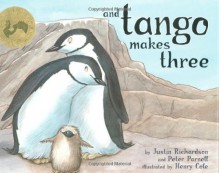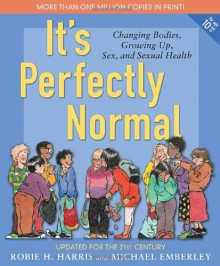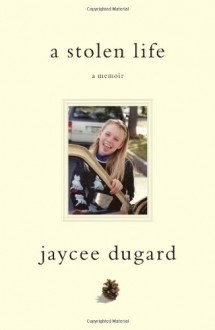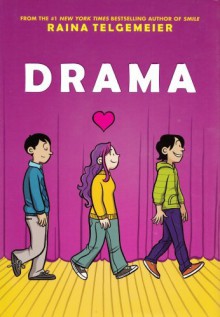This is taken from the American Library Association's website devoted to banned books: http://www.ala.org/bbooks/frequentlychallengedbooks. You can read why this books were challenged if you click on the link. Here are my thoughts/opinions/reactions:
1) The Absolutely True Diary of a Part-Time Indian by Sherman Alexie
This book is constantly on most challenged lists of any kind. A new reason for its' challenge is for depictions of bullying, which is a hot topic among school administrators. After reading the blurb, I think I will add it to the wish list. Native American voices are sorely needed in American literature and to try and silence those voices because it doesn't fall in line with "cultural sensitivity' (another reason for challenges) of non-Native Americans doesn't make these experiences and voices less valid.
2) Persepolis, by Marjane Satrapi
I admit to not knowing a whole lot about Iran or Iranians/Iranian-Americans, so this would be a great introduction to that world. I feel like there is a two-pronged agenda for challenging this book: one, it is by an Iranian (a group of people we have been conditioned to hate due to our governments not getting along), and two because it is written by an immigrant woman. This agenda makes me twitchy. Another add to the wish list.
3) And Tango Makes Three, Justin Richardson and Peter Parnell
My first reaction to this is really? After so many years? I wonder where Heather Has Two Mommies falls in this order (that was the big LGBT+ taboo book when I was in school - you know, back in the medieval age). Going to look for it at my local libraries and read it to the kids. No time like the present to start the rebellion in the next generation.
4) The Bluest Eye, by Toni Morrison
My first reaction to this is, "OMG not Morrison! She is beloved among the literary circles." I guess critical and commercial success does not insulate you from the hammers of banning. I have never read Morrison, but I heard not to start with this book but rather her earlier novels and work your way to this book.
5) It’s Perfectly Normal, by Robie Harris
Because America was colonized by a bunch of Puritans (a group the Brits couldn't wait to get rid of) and we haven't quite rid ourselves of that sense to this day. That is all I can think that would make a non-fiction health book about puberty challenge material.
6) Saga, by Brian Vaughan and Fiona Staples
This book is often challenged due to "anti-family" sensibilities. I can't really think of series that is more "all about the family" than this series, and here is an article that backs that up and proves challengers wrong: http://io9.com/10-reasons-you-should-be-reading-brian-k-vaughan-s-sag-756300575.
7) The Kite Runner, by Khaled Hosseini
Much like Persepolis, I think a lot of challenges are based on how Americans see Afghanistan, the Afghani people, and Afghani-Americans through the lens of the media and our government. I am not really familiar with Afghanistan. One of the reasons it is challenged is due to "violence and torture"; uh, hello, Soviet invasion and the Taliban regime weren't all puppies and rainbows people! I am putting this on my TBR wish list, but will be prefacing that with the admission that I will be skipping the child rape scene(s) - I know I won't be able to handle that.
8) The Perks of Being a Wallflower, by Stephen Chbosky
My reaction to this challenge is "teenagers in a YA book acting like...teenagers? That is what is dangerous...uh, okay." I might read, even though I don't normally read YA.
9) A Stolen Life, Jaycee Dugard
I am dumbfounded as to why this is on the list. This woman went through a hell I couldn't even imagine and wrote the book to make sure her voice and story was known without the editorial slants by various media. Yes, it would be behoove parents to know and understand their kids' limits on reading this story, but to ban it because it is sexually explicit is stupid - she was raped and bore two daughters, this isn't 50 Shades of Get Your Rocks Off. This story was everywhere, so to try and cover up the victim's story in her own words feels so damn wrong. Another addition to the wish list.
10) Drama, by Raina Telgemeier
Because coming to terms with your sexuality should happen only after you get your driver's license? This book has the most shaky of reasons for being challenged. And having a middle school age girl be that self confident and know what she wants out of life (at the present time) and goes out and does it? We are banning that? Another graphic novel to add to the wish list.
Final thoughts:
I would like to state for the record that I am not a government conspiracy theorist (or practitioner for that matter). I just understand that in order to gain support for certain military operations, a good vs. evil narrative is given by the media to spin. Geography and cultural studies really aren't American past times, which aid in spinning a certain narrative (I give the example of Czech Republic vs. Chechnya on Twitter during the Boston bombing).
Also, I find it interesting that graphic novels are such popular materials to challenge. Could it be that the pictures add another dimension that make people uncomfortable with the themes discussed?
Challenging non-fiction, and an autobiography at that, worries me as a historian-ish person. Will more autobiographies and first person accounts of events be challenged in the future? What about history books? I don't like to use the slippery slope argument, but banning non-fiction books because they tell of a time/event/place that is less than sunshine and apple pie to me sets a dangerous tone for future generations learning our country's history.
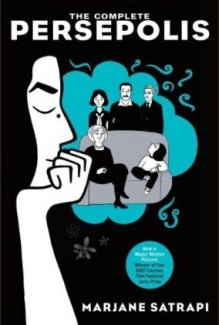

 Log in with Facebook
Log in with Facebook 


